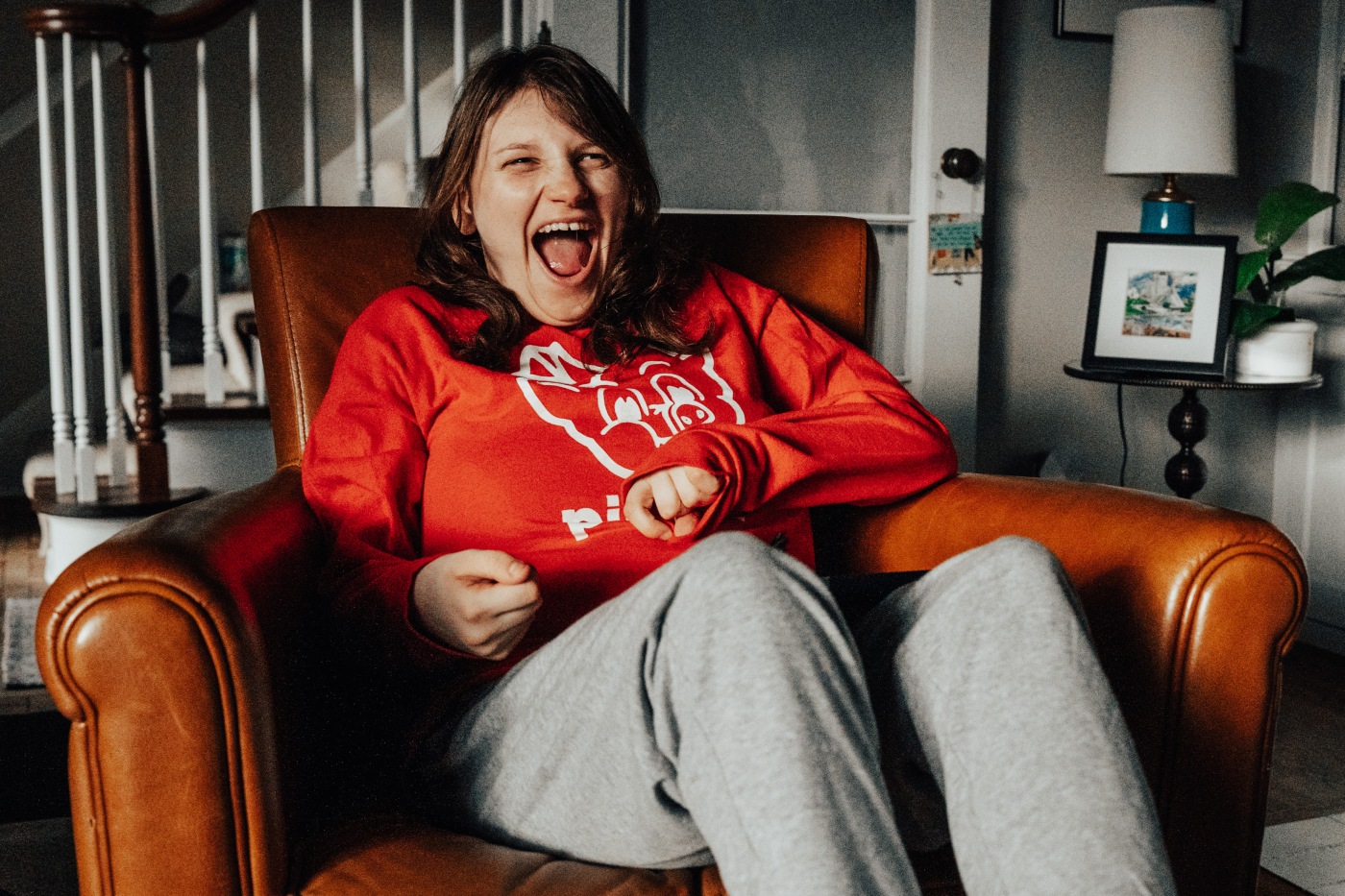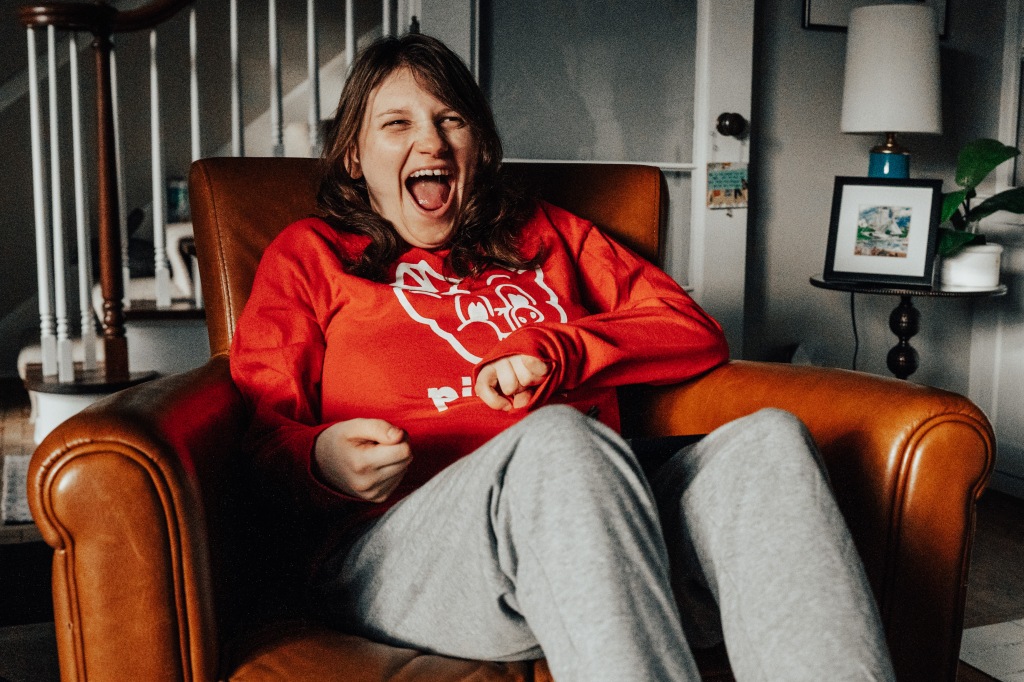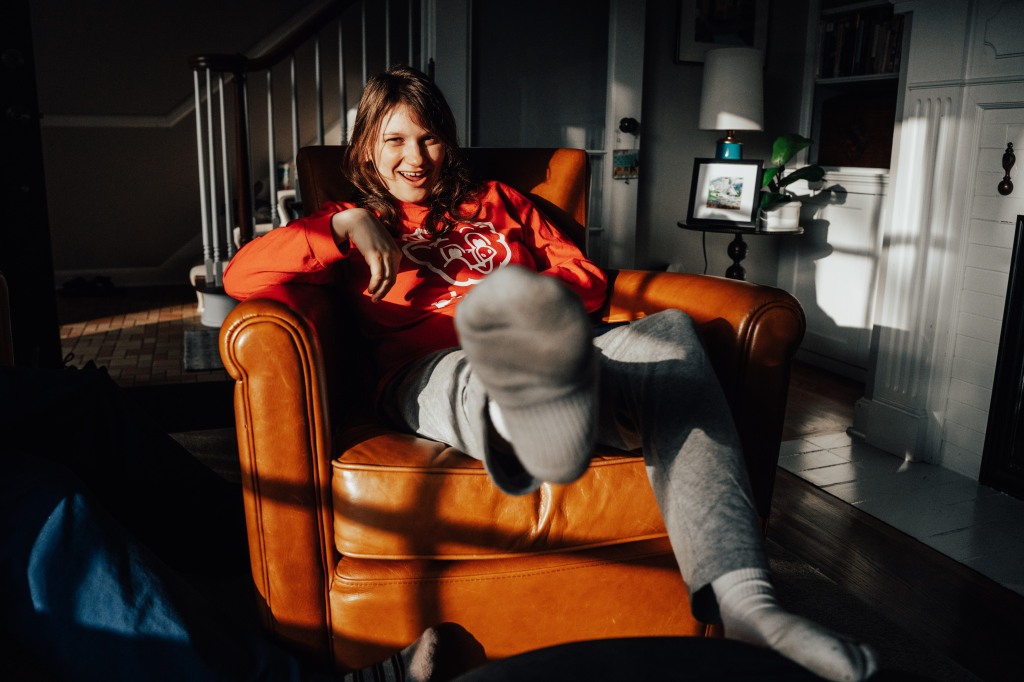“Teagan is a fiery, opinionated, loyal, deeply sensitive, empathetic young lady. She is the hostess with the mostess who, after getting over some initial anxiety, loves a good party!
Seeing Teagan become a “typical” teen in many ways has been fantastic to watch!! Angelman children don’t require a lot of sleep. We went a decade with her sleeping four, maybe five hours a night. Not now! She is lazy and sleeps in – I sometimes still don’t believe it. She loves to be on her device just as much as the next kid and she finds tiktok VERY funny. When she has friends over she waves the adults off, like “bye – see ya”, too cool to hang with her parents.
Since Teagan is in that transition age between teenager and early adulthood, the most important thing that we think of in her future, aside from her safety and health, is that she’s not forgotten. It’s easy when kids are in elementary school and peers can be on the same page. Everyone plays on the playground, it’s still OK to be silly, a whole class is invited to birthday parties…but as students progress and gaps in abilities get greater, a lot of effort has to be put into making sure that Teagan stays part of the community that she started in. We have seen her social life slow down quite a bit as others around her get busier, rightfully so. It will always be a blessing, and a curse, to watch her friends blossom and grow, at the same time knowing that Teagan is blossoming at the very different pace.”
“The most important thing that we think of in her future,
aside from her safety and health, is that she’s not forgotten.”
“Angelman syndrome is a mutation, deletion, or duplication of your UBE3a gene on your 15th chromosome. Those living with Angelman syndrome are almost 100% nonverbal, the vast majority suffer from life-threatening seizures, there are global delays, balance disorders, GI issues. Lifelong care is necessary. We are fortunate that we are able to take Teagan to an Angelman specialist at MassGeneral Hospital in Boston. Her seizures are currently very well-maintained, but I went almost a decade of bracing myself every morning when I opened her door praying to God that she didn’t die in her sleep from a seizure that I didn’t see. That’s a silent toll that isn’t talked about very often.
The incredible thing about science and Angelman syndrome being a single gene disorder, is that curing it is in the future – we believe this. There are currently multiple clinical trials happening with different therapeutics to treat AS.
Ask her and she will tell you that she does not want to have Angelman Syndrome. She gets that she “has something” and she fights it every minute of her life.”
“The incredible thing about science and Angelman syndrome being a single gene disorder, is that curing it is in the future – we believe this.”
“The use of technology has been a game changer for so many nonverbal people. Teagan uses a program on her ipad that is loaded with phrases and photos of people she knows. She taps the icon and the words are spoken for her. Her program is ever evolving, as her interests grow and change. She loves to make people laugh, so having funny things to say or gross noises to play on her ipad is highly motivating for her.
What is crazy to think about though is that an individual can hear upwards to 21,000 words a day and the average person speaks 7000 words a day. Teagan doesn’t come anywhere close to using a number like that – the reality is that so much that she has to say is locked away in her sweet little head. This thought breaks my mama heart.”
“The use of technology has been a game changer for so many nonverbal people.”
“When Teagan was little, I did a presentation in one of her classes and I challenged her teacher to hold a pair of weights (to hamper mobility) and without using any verbal language (non-verbal) to tell the class her favorite movie. She sat there for a few moments and then looked at me and said “I can’t”. I watched as it registered in her eyes and she shifted to gaze Teagan. It was a powerful lesson.
Teagan and those like her may be nonverbal, but that absolutely does not mean that she doesn’t have 1 million things that she would like to say. And it’s hard. Even with iPads, hand gestures, signs… This is what makes me in awe of her the most. That she goes through life with so much of herself locked in a box. She’s the most resilient human being I know. “
“Teagan and those like her may be nonverbal, but that absolutely does not mean that she doesn’t have 1 million things that she would like to say.”
A note from NHU:
All disabled voices are important, even those that are spoken through technology. It’s important that we take the time to listen, to ask questions, to give their words and feelings a space in our world and lives.
To learn more about Angelman Syndrome check out the Angelman Syndrome Foundation





Leave a comment